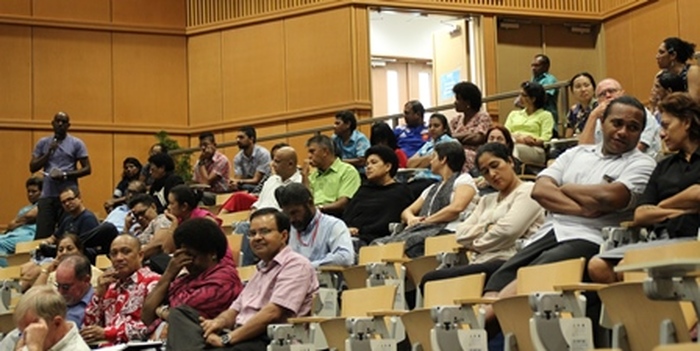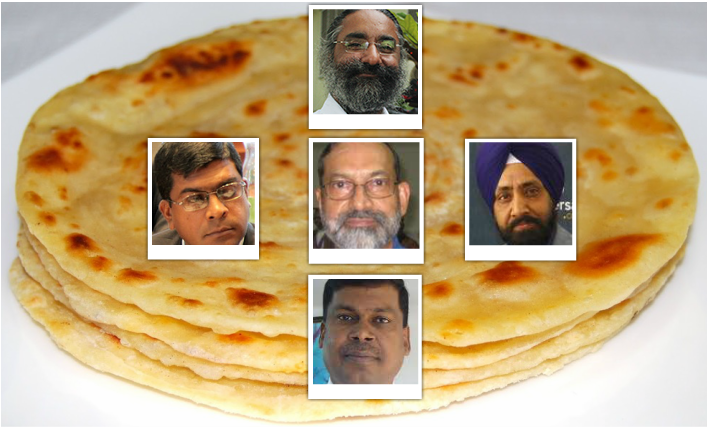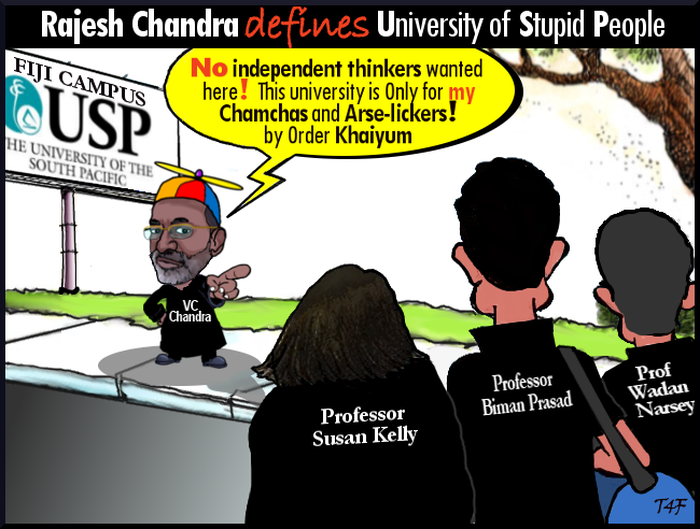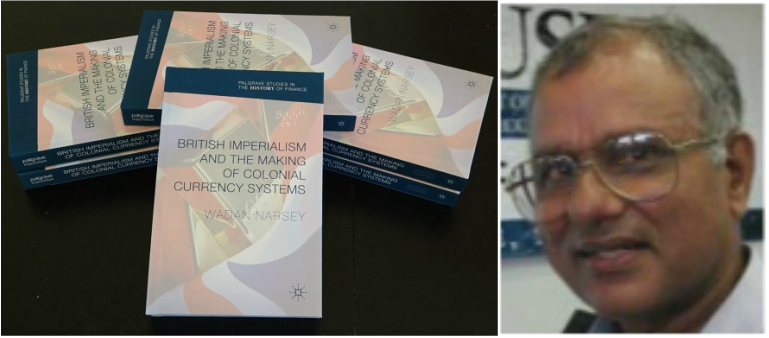What a twisted reasoning that bias would endanger the academic freedom of others. The fact is with entrenched academic freedom any biased presentation without factual proof, will only belittle and diminish the standing of the presenter. We find this strange coming from the VC Rajesh Chandra
'Academic freedom does not give you a license to defame other people or to pursue a biased and personal agenda or to endanger the academic freedom of the vast majority of your colleagues,' he noted.
He once said he does not take no for an answer and that there were only two types of people, those who will work with you or those who will keep criticizing. And now he says people can disagree…may be he means people can disagree with each other but not with him
He made the comment at the first Staff Forum for the year at the Japan-Pacific ICT Centre in Laucala on 25 April, 2016.
Professor Chandra said academic freedom largely involves the ability of the University to develop its curricular without interference from anyone except for controls such as the relevance and modernity of the programmes and courses offered, and their alignment with the Strategic Plan objectives.
“It means the freedom that each lecturer has to perform the learning, teaching and research activities without interference,” he emphasised.
According to Professor Chandra, academic freedom is also “the ability of staff to make comments publicly, observing the codes relevant to their professions, reflecting their areas of expertise”.
“Academic freedom does not give you a license to defame other people or to pursue a biased and personal agenda or to endanger the academic freedom of the vast majority of your colleagues,” he noted.
Professor Chandra also told staff members that USP’s guidelines and provisions relating to academic freedom are similar to those of Australian and New Zealand universities.
Professor Chandra also said the University can only succeed in its goal of transforming itself from good to excellent if staff cohesion is maintained.
He added that universities are places where one can disagree with others, which is the norm of any good university. "I would like to see more emphasis on how staff can work together, how colleagues can be respected and how we can be more professional. We argue different points but when people put their personal agendas above the interest of the university, than those staff have a real problem, ” Professor Chandra added.
Professor Chandra urged staff at all levels to engage with each other.
“I would like to suggest that engagement be an important priority at all levels – including Senior Management, Deans, Heads of Schools, and all supervisors so that we do not have any sense of alienation that can quickly set in, in any situation, especially so when there are a lot of changes going on,” he said.
He assured staff that they had the complete freedom to raise any issues affecting them without fear at the university and urged staff to be professional, observe the relevant codes of ethics of their disciplines, and demonstrate the strength of their academic training and expertise.
Professor Chandra also confirmed that management was engaging with the unions and staff representatives to finalise agreements for the welfare of staff.
One such agreement which is likely to be implemented soon, he said, was the rolling out of five-year contract for staff instead of three years.
“I want to ensure that this happens either towards the end of this year or early next year so we can deal with the inadequacies of three year contracts. We also want to agree on good probation arrangements when we move to longer terms to protect both parties,” he noted.
He said management will work on concluding agreements with the other unions “so that all of us have clear paths to where we are heading”.
Professor Chandra added that he was expecting grand celebrations at USP’s 50th anniversary “to mark the anniversary of this unique institution that really has shaped our region in a way that no university, other than the University of West Indies has been able to do”.
“Staff constitute our main focus because without you we cannot deliver anything. We are together on this inclusive and shared journey,” he said. Source: USP Newsletter
http://www.fijileaks.com/home/paratha-treat-or-biman-prasads-friendship-minutes-of-meeting-reveal-vc-rajesh-chandra-giving-dr-dilawar-grewal-ultimatum-you-must-cut-all-contact-with-dr-gurmeet-singh-and-prasad-to-save-your-contract
(30 April 2016)
It has been the happiest day of my academic life to see the highest form of one’s academic work in print, in an actual book form.
International publishers published my book British Imperialism and the Making of Colonial Currency Systems, and sent me my 6 “author copies”.
Of course, I had known for a while it was coming, but it is a totally different thing to see the actual book, and hold it in your hands, and know that a copy will be in virtually every university library in the world (I hope).
Covering the colonial Empire (including West Indies, India, Singapore, West Africa and East Africa), this book is a detailed revisionist history of the British imperial manipulations of colonial currency systems to facilitate the rise of sterling to world supremacy via the gold standard, and to slow its eventual decline after World War I.
Official internal correspondence is used to show that Britain typically acted against the advice of colonial commercial interests, colonial governments, and even officials in the Colonial Office, in order to replace international currencies (including gold and sterling itself), with localised silver currencies. The local currencies were backed by gold and sterling reserves in London, under the total control of the British Treasury and the Bank of England. In the process liquidity was provided to the London money market, and cheap finance to the British Government.
This book provides a new perspective on theories of imperialism, colonial money and colonial underdevelopment, with possible geostrategic historical lessons for the US dollar and emerging global currencies such as Chinese renminbi and the Euro.
Review
'Narsey offers us an original and pioneering investigation of how the British state regulated gold, silver and paper as media of exchange, debt, and savings in colonies, from simple management of coinage to the emergence of the currency board, to become a critical part and the heart of the British Empire. Appearing in the fascinating story are privateers in the eighteenth-century West Indies with gold standards based on the slave economy and contraband from the Spanish main, Keynes's work on the currency of the Raj, and twentieth-century debates about the colonial money supply and economic development. The common theme is that the economic interests of metropolitan Britain were almost always given primacy in the administration of colonial money. The book is a valuable addition to the economic history of both the British empire and of globalization.' - Professor Richard Drayton, Rhodes Professor of Imperial History, Kings College, London
'Based on extensive archival research, Professor Narsey shows that imperial priorities took precedence over native desires for economic development in dependent colonies throughout the history of the British Empire. This was an undesirable, but fully intended, consequence of imperial financial innovations in the British colonies, including the currency boards of Hong Kong and Singapore whose later success came only when British political control was lifted.' - Professor Larry Neal, Professor Emeritus of Economics, University of Illinois at Urbana-Champaign
'This is an important contribution to the growing body of knowledge on the history of colonial currency systems.' - Chibuike Uche, Senior Researcher, African Studies Centre, Leiden
Wadan Narsey is former Professor of Economics at The University of the South Pacific, Fiji, currently Adjunct Professor at The Cairns Institute, James Cook University, and at Swinburne University, Australia. A former Fiji parliamentarian, he has written on poverty, labor markets and gender in the Pacific, the political economy of Fiji, and is a regular columnist for the Fiji Times, with his personal website NarseyOnFiji.







